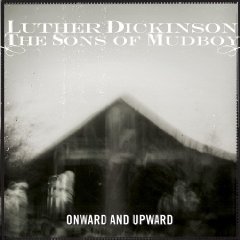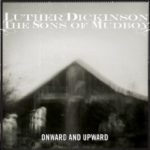
Memphis International
So far I’ve been fairly lucky when it comes to the arrival of the Grim Reaper. While I have lost a number of friends and relatives and feel sorrow for each one, I have yet to mourn an immediate family member. And when that eventuality does occur I don’t think I’d be inspired to create anything all too quickly. Then there’s Luther Dickinson (Black Crowes, North Missisippi All Stars) whose iconic father, Jim was a legendary producer (Big Star, Ry Cooder, Mudhoney), valued session man (Rolling Stones, Aretha Franklin, Bob Dylan) and solo artist, passed away on August 15th following heart surgery. Several days after the elder was laid to rest, Luther entered the family’s Zebra Ranch studio with an ad hoc group of former musicians in Dickinson’s Mudboy and the Neutrons band and other friends, including Jimbo Mathus and Shannon McNally.
Finding an outlet to take one’s mind off of grieving is certainly understandable, but to tackle such a task makes me understand why I write about music rather than make it. The lightning speed session used just two microphones plugged directly into the tape recorder with most songs done in one take. Understandably, the dozen tracks here are raw in presentation, yet are far from clumsily made. The material can be broken down into three categories – originals that Luther wrote following the deaths of his father and grandmother (“Up Over Yonder”), blues covers from Mississippi Fred McDowell (“Back Back Train”) and Otha Turner (“Glory Glory”), and gospel tunes that were passed down from one generation to the next (“Leaning on the Everlasting Arms,” “His Eye Is on the Sparrow” and “Where the Soul of a Man Never Dies”). The inclusion of the last song is especially significant since the liner notes uses Jim’s words as his own eulogy. It includes the line “I will not be gone as long as the music lingers.”
Luther’s acoustic blues take on “Let It Roll” revels in anguish and attempts to be appeased by heavenly salvation, “Back Back Train” brings him more relaxed and able to expand the song’s framework. His contributions are countered by the homespun spirituals of “Angel Band,” “Where the Soul of a Man Never Dies” and “In the Garden,” which sound as if they traveled from the lush bluegrass mountains so they could comfort the tribute subject at his grave. In all, Onward and Upward elicits the catharsis that the musicians were seeking. And with its heartfelt sincerity and simplicity, it imparts a soothing presence to those listening.



No Comments comments associated with this post